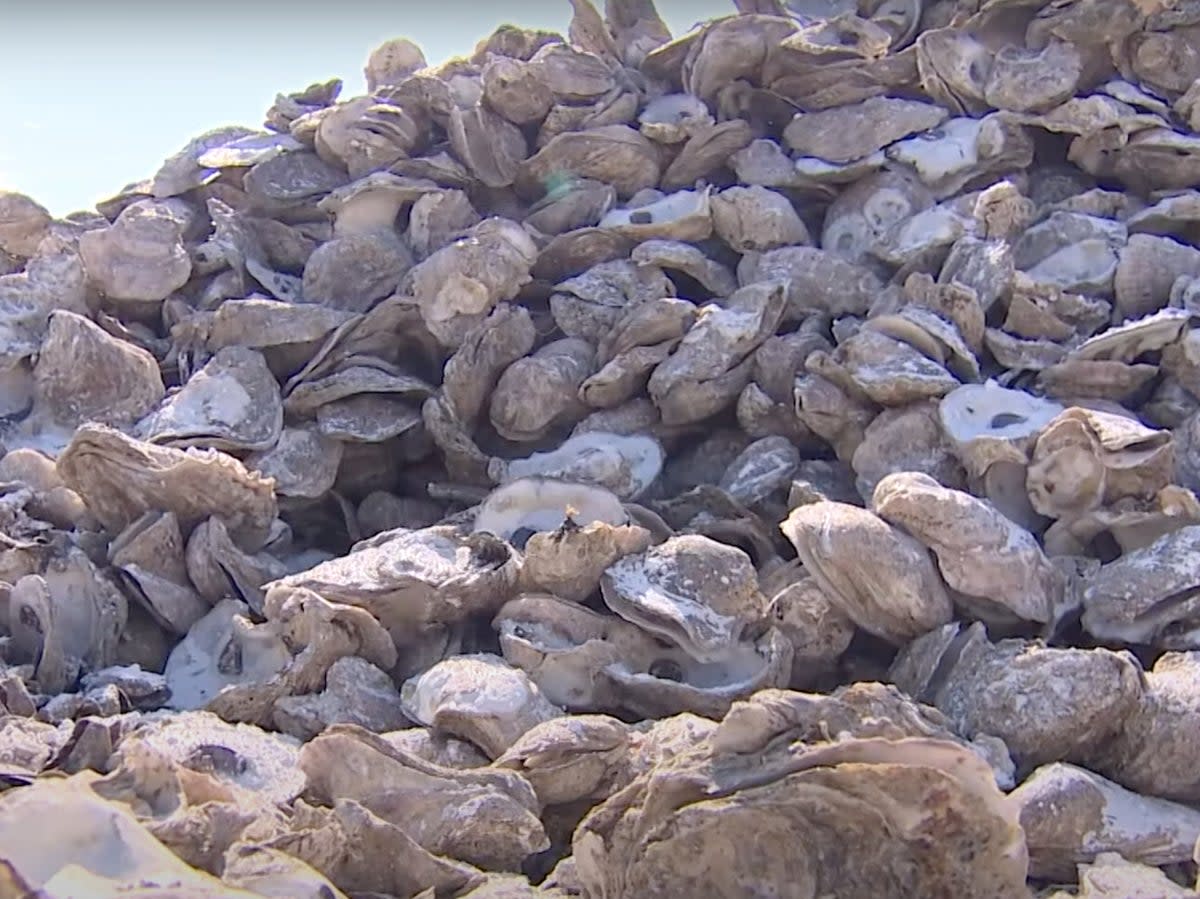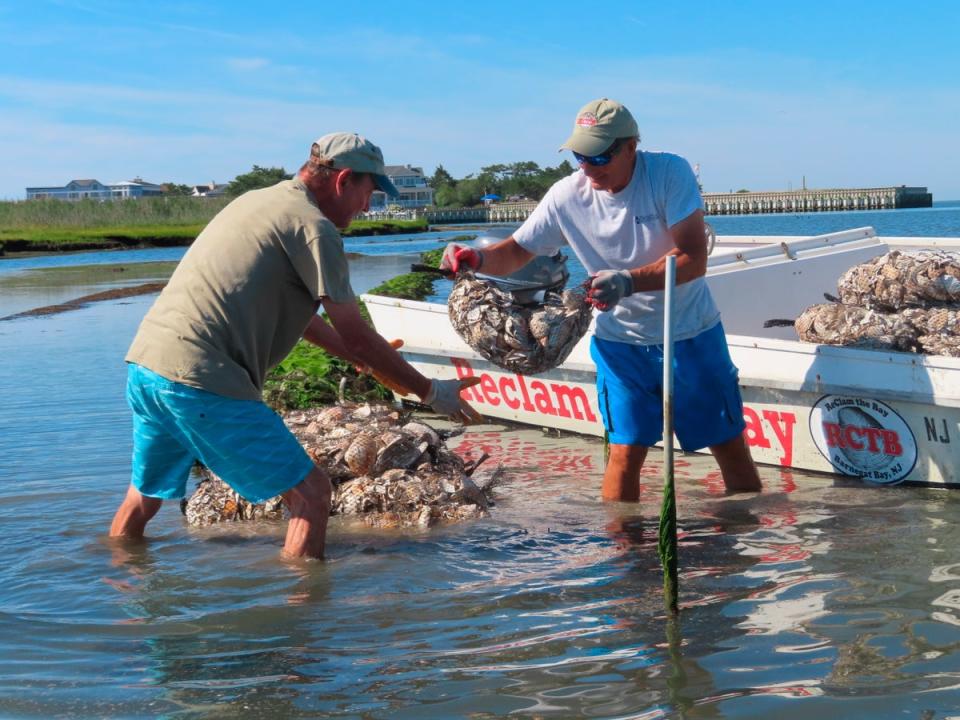$5m worth of oysters wiped out after fresh rainwater overwhelms their Texas home

The oyster industry in Texas was dealt a massive blow after weeks of storms in Houston caused a near-collapse of the mollusk population in Galveston bay and millions in losses for local businesses.
A deluge of fresh water from heavy rains further north killed almost all of the oysters in the bay. Experts believe it will take years for the population to recover, according to KHOU.
Oysters thrive in brackish water, a mixture of fresh and salt water. The rapid introduction of more fresh water from rain run-off disrupted the balance, leading to the oysters' deaths.
“It’s deadly to oysters when you get that amount of fresh water,” Prestige Oysters Vice President Raz Halili told KHOU. “They’re resilient creatures but there’s only so much they can take.”

Halili, who also owns a seafood restaurant, told Houston Public Media that he lost approximately $5million worth of his oyster crop in private fishing reefs.
The destruction is so significant that Galveston County Judge Mark Henry issued a disaster declaration for the region's oyster industry.
The stormwater deaths are just the latest in a series of climate-related crises the industry has had to weather in recent years. Floods, freezes, and droughts have also taken a toll on the mollusks' population in the bay.
Harvesting on the eastern side of Galveston Bay had to be halted for two years after Hurricane Ike destroyed the oyster population in 2008.
Halil said the benefits that oysters introduce to an ecosystem are often overlooked. In addition to providing food for other sea life, mollusks also filter bay water and help prevent coastal erosion.
“So, even if you’re not an oyster lover, you have to really appreciate everything that they do for us here on the Gulf Coast,” he told HPM.

That's why he's been collecting oyster shells. More than 300 tons of them.
Halil is also the owner of Pier 6 Seafood and Oyster House and has been saving the shells for the purpose of reintroducing them to reefs. In addition to providing a breakwater in the reef, the shells also provide a safe habitat for baby oysters to grow, according to the National Oceanic and Atmospheric Administration.
The business owner said that it will be "tough" to wait the three or four years for the population to bounce back, noting that his company made "millions" worth of investments to bolster the oyster crop before they were wiped out.
The need to protect oyster populations and encourage their growth isn't lost on the federal government.
NOAA's Office of Habitat Conservation awarded $5m to Restore America's Estuaries, a non-profit focused on protecting and restoring estuaries and bays across the nation. The money will go toward restoring oyster habitats in Louisiana, Florida, Alabama, and Texas.
The funding was approved as part of the Bipartisan Infrastructure Law and Inflation Reduction Act passed in 2022.

 Yahoo News
Yahoo News 
